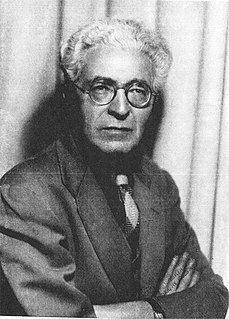A Quote by Kenny Smith
I start off with the obvious, that it makes no sense either to believe or to disbelieve in God until a substantial and intelligent definition or concept should be offered. Belief or disbelief is a secondary consideration, contingent on the intelligibility and cogency of the premise; the primal unintelligence or irrationality of moderns is revealed by their eagerness to leap to a conclusion without ever being curious what the hell the original premise was.
Quote Topics
Related Quotes
Logic, n. The art of thinking and reasoning in strict accordance with the limitations and incapacities of the human misunderstanding. The basic of logic is the syllogism, consisting of a major and a minor premise and a conclusion - thus: Major Premise: Sixty men can do a piece of work sixty times as quickly as one man. Minor Premise: One man can dig a post-hole in sixty seconds; Therefore- Conclusion: Sixty men can dig a post-hole in one second. This may be called syllogism arithmetical, in which, by combining logic and mathematics, we obtain a double certainty and are twice blessed.
Obviously, if theism is a belief in a God and atheism is a lack of a belief in a God, no third position or middle ground is possible. A person can either believe or not believe in a God. Therefore, our previous definition of atheism has made an impossibility out of the common usage of agnosticism to mean "neither affirming nor denying a belief in God."
God is real. God is here now. God is this moment revealed. For the most part, we are lost in the past and future world of the mind. To experience the living Presence of God in all things present, we will have come to where God is. We will have to become fully present. Otherwise we have no choice but to believe in God or disbelieve in God and neither is true, for the truth is beyond belief!
The belief in God is not therefore based on the perception of design in nature. Belief in design in nature is based upon the belief in God. Things are as they are whether there is a God or not. Logically, to believe in design one must start with God. He, or it, is not a conclusion but a datum. You may begin by assuming a creator, and then say he did this or that; but you cannot logically say that because certain things exist, therefore there is a God who made them. God is an assumption, not a conclusion. And it is an assumption that explains nothing.
The realm of the real is Spirit. The unlikeness of Spirit is matter, and the opposite of the real is not divine, it is a human concept. Matter is an error of statement. This error in the premise leads to errors in the conclusion in every statement into which it enters. Nothing we can say or believe regarding matter is immortal, for matter is temporal and is therefore a mortal phenomenon, a human concept, sometimes beautiful, always erroneous.
No, you don't have to start your play with a premise. You can start with a character or an incident, or even a simple thought. This thought or incident grows, and the story slowly unfolds itself. You have time to find your premise in the mass of your material later. The important thing is to find it.
[The artist's aim is] not to instruct the viewer, but to give him information... . The artist would follow his predetermined premise to its conclusion, avoiding subjectivity. Chance, taste, or unconsciously remembered forms would play no part in the outcome. The serial artist does not attempt to produce a beautiful or mysterious object but functions merely as a clerk cataloguing the results of his premise.





































